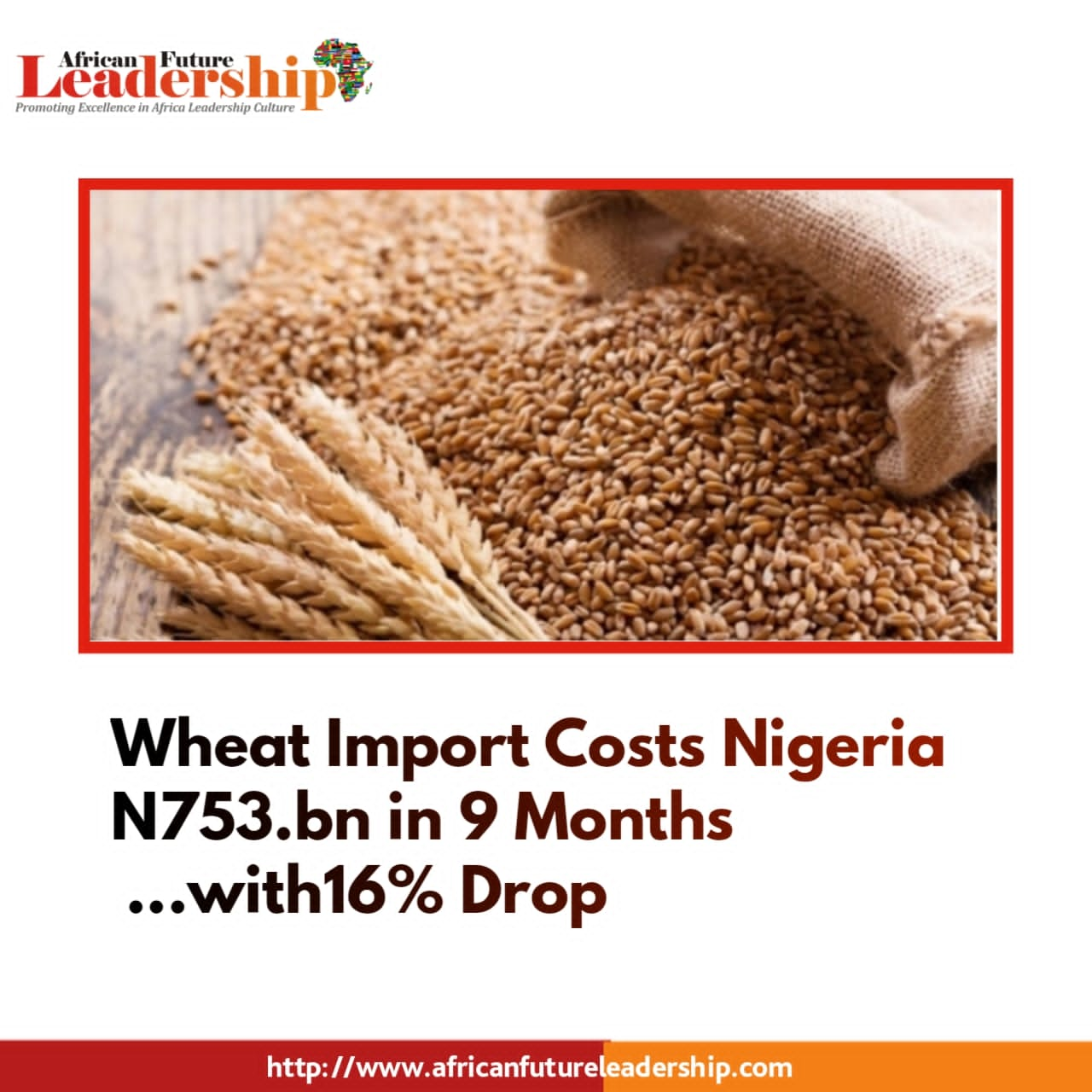By our Reporter
Under stiffening inflationary trends, a total of N753.597 billion was used to import durum wheat, in the first nine months of 2022, into the country, making it the country’s highest imported food item.
Following reliable records, wheat is the third most imported item in the country after petrol and gas oil.
And durum wheat is a variety of spring wheat that is typically grinded into semolina and used to make pasta, couscous, bulgur, noodles, and bread, all of which are highly consumed meals in Nigeria.
Meanwhile, three quarters worth of durum wheat import in 2022 is, however, less than what was spent on importing the food item in the first three qarters of 2021.
So, importation of durum wheat in the first three months of 2021 stood at N898.19 billion with N258.3 billion worth imported in the first quarter while N324.72 billion and N315.17 billion was spent on importing the food item in the second and third quarter of 2021 respectively.
READ MORE: Dangote Seeks Smart Nigerians to Work at Refienery
And the amenable figures of, N258.31 billion, N242.66 billion and N252.62 billion were spent on importation of durum wheat in the first, second and third quarters of last year, according to trade data by the National Bureau of Statisitcs(NBS).
Thus, the amount spent on the importation of wheat in the first three quarters of 2022 was 16.1 per cent lower than what was spent in the same period of 2021.
Particularly, in 2021, total durum wheat importation in the country for the whole year stood at N1.29 trillion representing a 71.1 per cent increase compared to N756.92 billion recorded in 2020. The cost of wheat had soared with the Russia-Ukraine war, spiking a surge in food prices.
Mahmood Abubakar, the Minister of Agriculture and Rural Development, had stated that, with the growing population and consumption rate of wheat and its products, Nigeria had no option than to boost its productivity to meet the country’s increasing demand.
Abubakar stated that, “the wheat industry has been of serious concern to the Federal Government. This is because of the national requirement for wheat is 5.7 million metric tonnes annually, while our production is 420,000 metric tonnes.
Again, “The Central Bank of Nigeria Statistical Report 2020 shows that Nigeria imported $6bn worth of wheat from 2016 to 2020. This is worrisome and unsustainable for a crop that could be produced locally.”
But the minister, however, noted that, the draft National Wheat Strategy Document was developed as a policy framework to increase production, incomes and the competitiveness in local production for smallholder wheat farmers.




